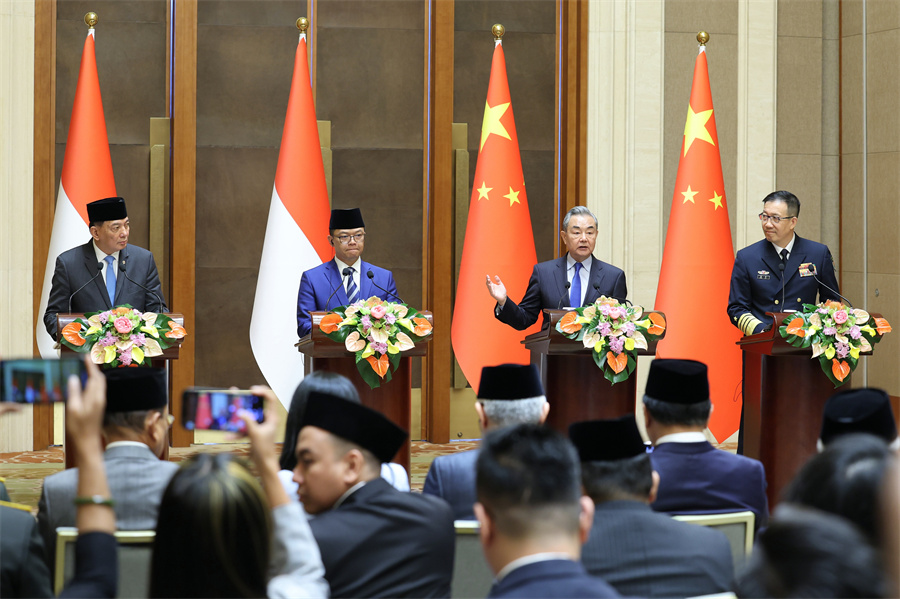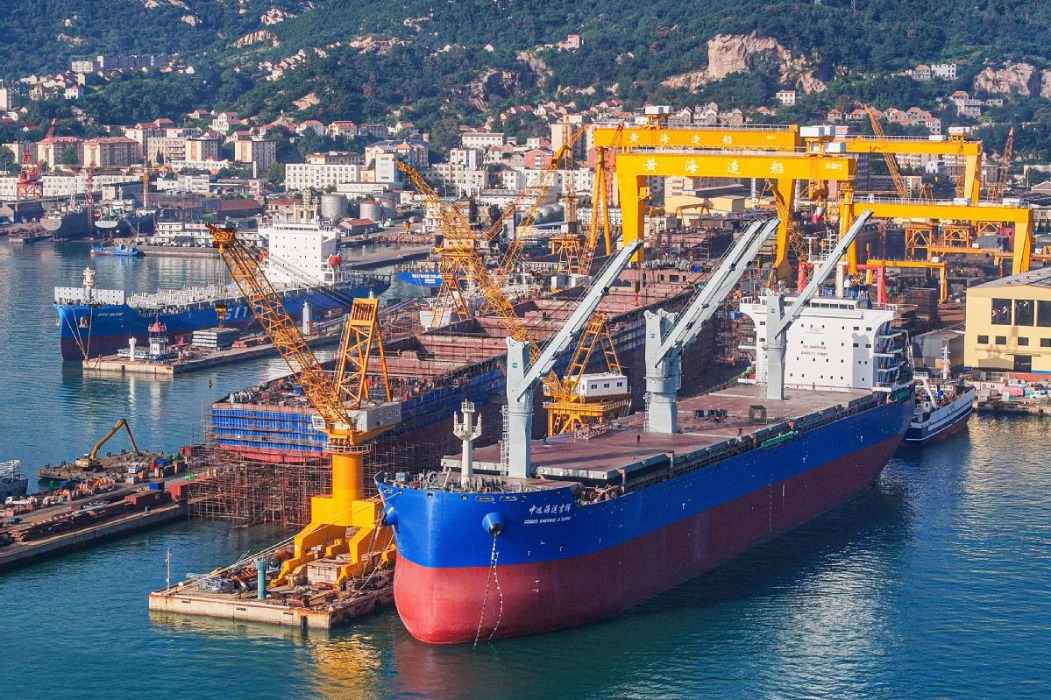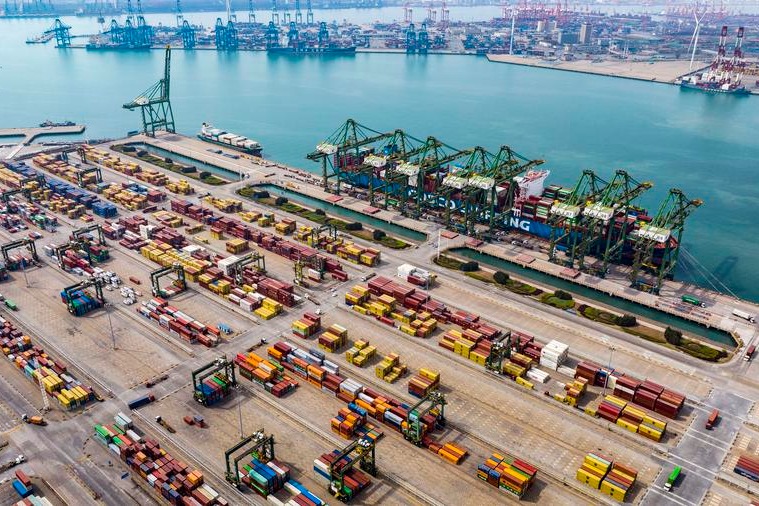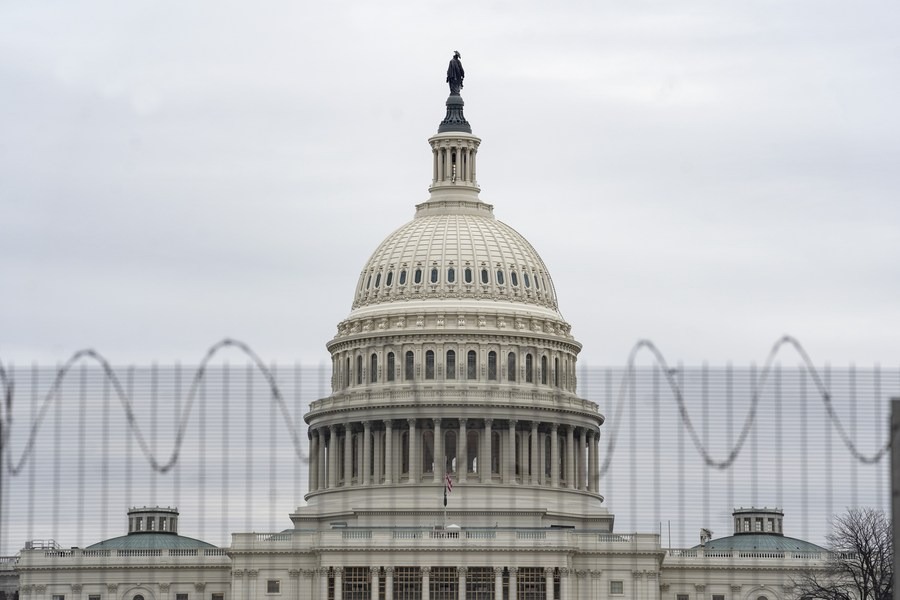Bulwark against seeds of division taking root


Attended by Foreign Minister Wang Yi, Defense Minister Dong Jun and their respective Indonesian counterparts Sugiono and Defense Minister Sjafrie Sjamsoeddin, the First Ministerial Meeting of China-Indonesia Joint Foreign and Defense Ministerial Dialogue was held in Beijing on Monday.
The first 2+2 mechanism China has established at the ministerial level, the meeting conveys the strategic significance Beijing attaches to relations with Indonesia, a major member of the Association of Southeast Asian Nations and the Global South.
This year marks the 75th anniversary of bilateral diplomatic relations between the two countries, and their exchanges on bilateral ties, security and defense cooperation and international and regional affairs will have been conducive to further deepening mutual understanding and trust between the two sides, and strengthening their collaboration.
The dialogue has produced a series of important consensuses that, if well implemented, can deliver concrete results that will contribute to not only the common development of the two countries but also the peace, stability and prosperity of the region.
For instance, apart from some economic and trade collaboration, the two sides agreed to further expand the connotation of security cooperation and practice a common, comprehensive, cooperative and sustainable security concept. They will establish a China-Indonesia consultation mechanism on disarmament, nonproliferation and arms control. The two sides will also enhance law enforcement and security cooperation, jointly combat transnational crimes such as cross-border gambling and telecommunications fraud, and strengthen cybersecurity cooperation.
Monday's meeting was one of the fruits of the heads-of-state diplomacy of the two countries.
China is committed to working with Indonesia to build on their past achievements and achieve greater progress through transforming their consensus on cooperation from ideas, initiatives, plans and project to results that bring concrete benefits to the two peoples.
Adhering to the principles of strategic independence, mutual trust, mutual assistance, win-win cooperation, fairness and justice, which represent a summary of the development experience of China-Indonesia relations over the past decades, the two sides can build a China-Indonesia community with a shared future. But they should be alert to external forces trying to drive a wedge between them for their own narrow ends.
Unlike the 2+2 dialogue mechanisms some external forces try and build with regional countries, the dialogue between China and Indonesia does not target any third party, but serves to consolidate the "five pillars" of bilateral relations — politics, economy, culture, maritime affairs and security — so as to better achieve integrated development and advance the two countries' respective modernization.
With the regional tensions rising due to the divisive moves of the external forces, the dialogue between China and Indonesia sends a clear signal that they oppose unilateralism and protectionism, and are committed to advancing an equal and orderly multipolar world and universally beneficial and inclusive economic globalization.
The sound development momentum of China's relations with Indonesia, as well as Vietnam, Malaysia and Cambodia, the three members of the Association of Southeast Asian Nations that China's top leader visited last week, should remind the individual parties at risk of falling prey to the external forces in the latter's Chinatargeted geopolitical game in the Asia-Pacific that their collusion goes against the common will of regional countries and the trend of the times, and is doomed to failure.
China and the members of ASEAN have broad common interests, huge cooperation potential, shared Asian values and a long history of friendly exchanges. That Beijing attaches strategic significance to its neighborhood diplomacy means the world's second-largest economy is open to sharing its development dividends and opportunities with the ASEAN countries.
The more efforts regional countries make to strengthen communication and cooperation, the stronger the opposition they express against the bloc confrontation that will leave no party in the region unscathed.
The maritime disputes between China and some regional countries that the United States is trying to exploit for its divisive agenda, should not and must not be allowed to hold the region's wellbeing hostage.

































